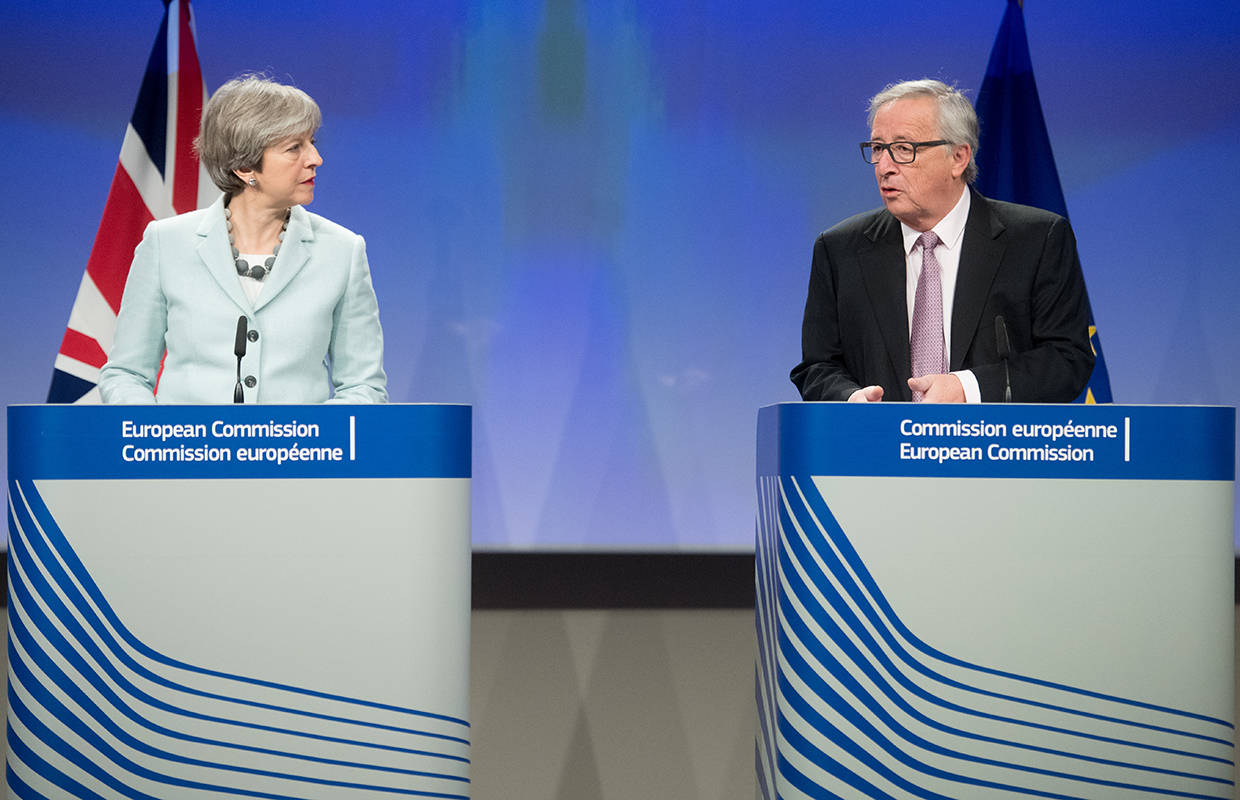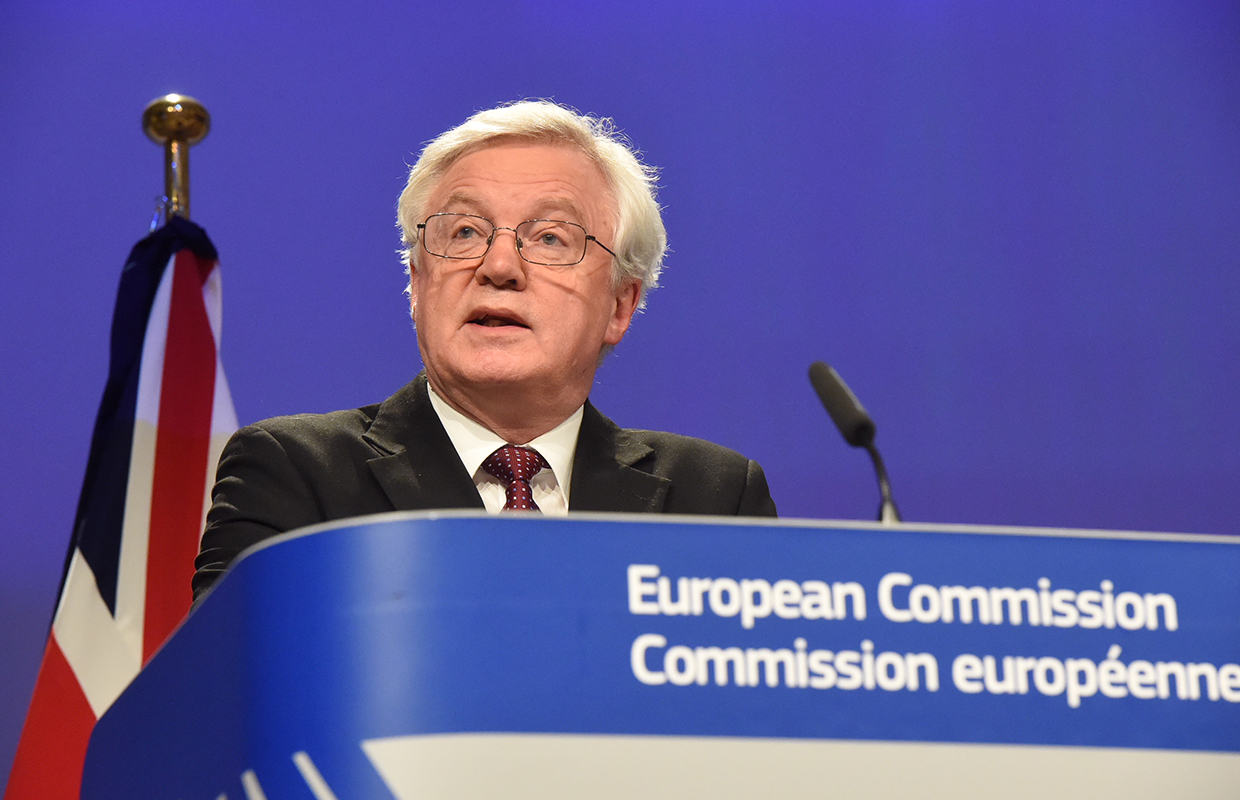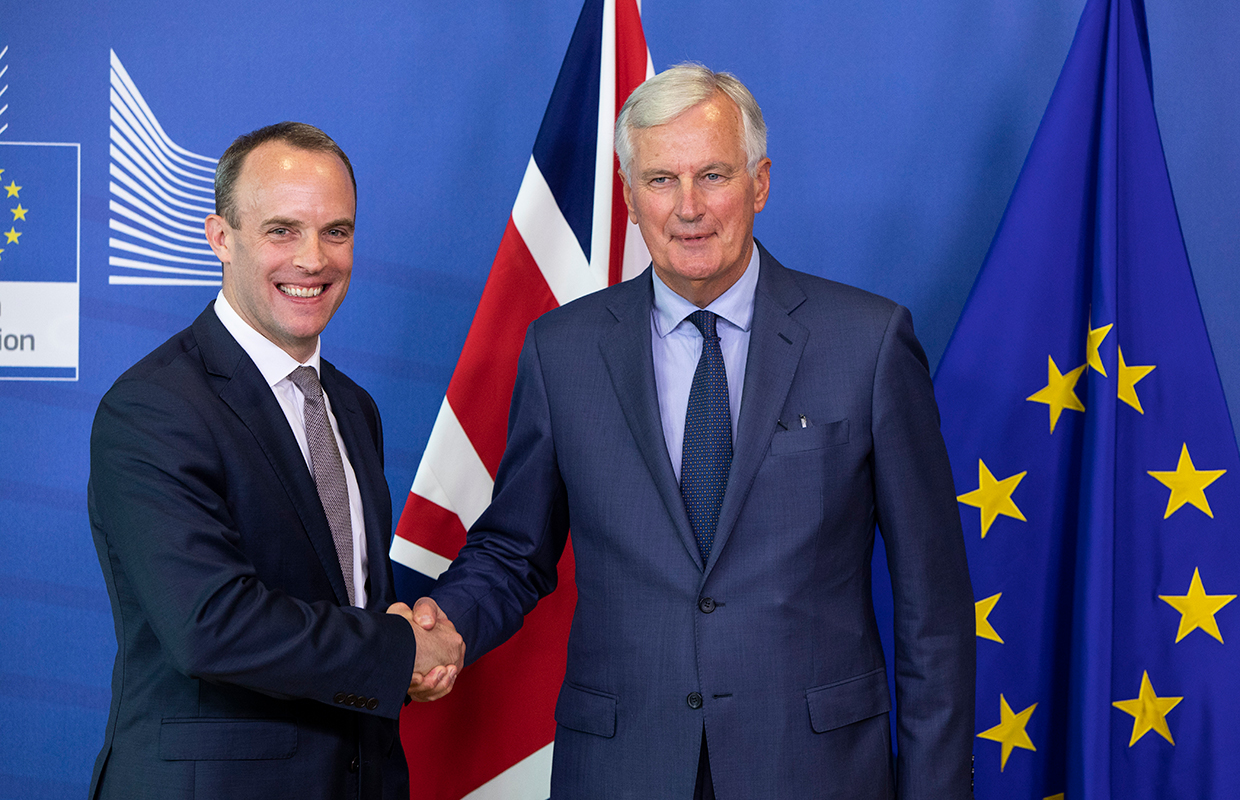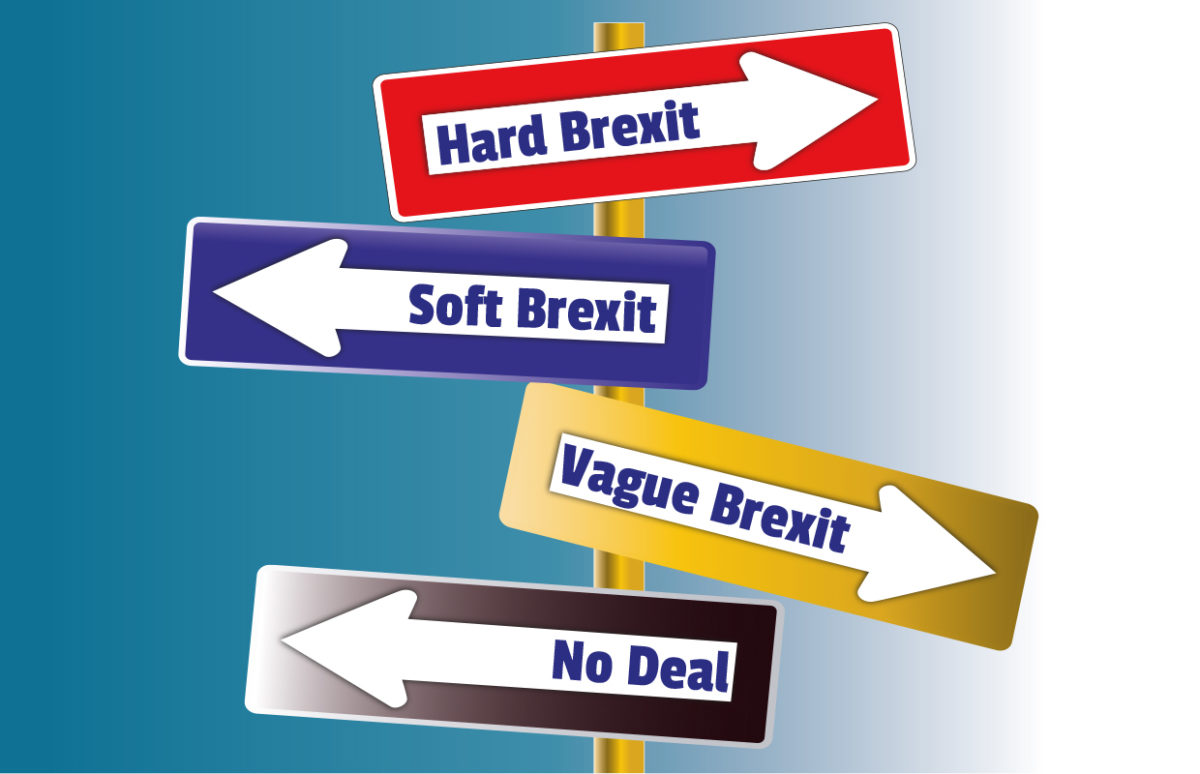As the Brexit negotiations between Britain and the EU race towards the March 29 deadline, what is the state of play?
The two-year negotiation period for Brexit expires on 29 March 2019 and many points still haven't been settled. Many of the problems with the negotiations come not from the EU-UK discussions but from tensions and uncertainty within the Britain's Conservative government.
Historically there has always been an anti-European faction within the Conservative Party. It was in part due to pressure from this faction that then Prime Minister David Cameron felt obliged to call the referendum on leaving the EU in the first place. The surprise success of the anti-EU UKIP party in the 2014 European Parliament elections in Britain also put pressure on the Government to propose a referendum.
In the actual referendum, Prime Minister David Cameron allowed his ministers to campaign for either side, while he became the head of the cross-party “Remain” campaign. Many Conservative ministers, MPs, party members and voters were firmly in favour of “Leave”.
After David Cameron’s resignation, he was replaced by Theresa May, who had declared herself a Remainer without making any noticeable impact on the campaign. She was faced with the thankless task of delivering Brexit. Despite her oft-repeated mantra “Brexit Means Brexit”, the problem is that it apparently means something different to just about everyone in the country.
The Beginning of the Countdown
The countdown to Brexit officially began on 29 March 2017, when Britain notified Brussels of its intention to leave. This is a novel situation, although it had been envisaged by Article 50 in the 2009 Treaty of Lisbon. Triggering Article 50 began a two-year negotiation period, which will end on 29 March 2019. Theoretically, on that date, the UK will leave the EU, or at least begin a transition period which would run until 31 December 2020.

The negotiations are vastly complex. They concern issues such as: customs tariffs between the UK and the EU, and the UK and the rest of the world; rules on standards and safety of products; movement of money through the financial markets; movement of UK and EU citizens as tourists; the fate of UK citizens who live and often work elsewhere in the EU, and EU citizens resident in the UK.
A particularly thorny problem is the border between Northern Ireland and the Irish Republic. Outwith Britain’s commitments to the EU, an open border was a key promise in the 1998 peace agreement on Northern Ireland. If Britain were to re-establish “hard borders” with customs checks on its other borders, how could it leave the Northern Irish one open?
Wrangling and Divisions
Three weeks after launching the negotiations, Theresa May took everyone by surprise by calling a general election three years early. Her hope was she would gain a more credible negotiating position by increasing the Tory majority, and being explicitly elected on a Brexit platform. It was a gamble that hopelessly misfired, leaving the government without a majority, dependent on an agreement with the ten Northern Irish DUP MPs to pass legislation.
The Government’s task has been further complicated by continual criticism from its own backbenchers, particularly those in favour of a “hard Brexit” (leaving the EU completely). The wrangling came to a head when Mrs May called a meeting of Cabinet at her country residence, Chequers, in early July. They agreed to a Brexit plan that clarifies that Britain will opt out of the freedom of movement of EU citizens but negotiate a free-trade area for goods with the EU. The Chequers plan disappoints both MPs pushing for a hard Brexit and those who support a "soft Brexit" (keeping as close to the EU as possible, even if that mean accepting European rules Britain can no longer influence, and continuing to make some financial contributions).
The plan was so divisive, it led to the resignation of first the Brexit minister David Davis and then the Foreign Secretary Boris Johnson. Hard Brexiteers in particular have continued to criticise it all summer, and have openly discussed when they will push for Theresa May’s resignation.

Citizens' campaigns to push for a hard Brexit, or to demand a second referendum or "People's Vote" on the final deal are adding further pressure.
About the only luck the Government has had it that the main Opposition party, Labour has been doing less damage than the Conservative backbenchers. Caught up in internal turmoil, Labour is in any case a difficult position over Brexit. The party campaigned to remain, though many Labour voters voted to leave. Since the vote, the party has officially proclaimed it will back the will of the people, but the whole issue is clearly uncomfortable with Labour. The little noise the party has made about Brexit has been generally towards the softer option.
The Final Straight
Meantime, the negotiations continue, with a new Brexit Minister Dominic Raab. Mrs May defended her Chequers Plan at a heads of government meeting in Salzburg on 20 December, and was rebuffed, with European Council head Donald Tusk saying that her proposals on access to the the single market wouldn't work, because they would undermine the single market.
An agreement really needs to be signed this autumn, in order for the European Parliament to approve it and the British government to get it through Parliament before 29 March. Insiders are whispering that such an agreement may in fact fudge the most difficult details, leaving them to be properly worked out during the transition period: a sort of vague Brexit.

The Government would definitely prefer that to the spectre of "no deal": if nothing were agreed, Britain would simply leave the EU. Many observers believe this would lead to chaos. It would be a form of hard Brexit but with no decisions made. From one day to the next, companies' access to the single market would revert to World Trade Organisation rules, with customs and duties procedures completely changed. Travellers could theoretically need visas, which don't exist.
The other nightmare scenario the Government faces is the perspective of a deal being agreed by the Cabinet but voted down by Parliament. In that case, as in much of the Brexit process so far, no one really knows what would happen.
We've updated our B1 Ready to Use Resource on Brexit.
Key Dates
27 May 2015: Conservative Prime Minister David Cameron announced a referendum on continued EU membership. He led the cross-party Remain campaign but several of his ministers and many party members campaigned to leave.
23 June 2016: British voters chose to leave the EU in the referendum. David Cameron resigned and was replaced by his Home Secretary Teresa May.
29 March 2017: Britain triggered Article 50 of the Treaty of Lisbon, opening a two-year negotiation period.
18 April 2017: The Conservative Party called a new General Election three years early.
8 June 2017: The Conservatives lost their Commons majority in the election. They now have to rely on the 10 Northern Irish DUP MPs to pass legislation.
6 July 2018: The Cabinet agreed a Brexit plan at the Prime Minister's country residence, Chequers. The Chequers plan clarified that Britain will opt out of the freedom of movement of EU citizens but negotiate a free-trade area for goods with the EU.
9 July 2018: David Davis, the Brexit Secretary in charge of negotiations, resigned, followed by Foreign Minister Boris Johnson (widely tipped to replace Teresa May as PM). Mr Davis was replaced by Dominic Raab.
Autumn 2018: A series of EU meetings. It is hoped that at one of them a deal will be announced.
29 March 2019: The day the negotiation period ends. A transition period will start.
31 December 2020: Transition period ends.
Copyright(s) :
European Union 2017 Photo Etienne Ansotte
European Union 2018 Photo Mauro Bottaro
European Union 2018
> Brexit Chaos
> Brexit
> Brexit Update
> Supreme Court Rules on Brexit Launch
> This Time Brexit Means Brexit
> Another UK Electoral Surprise
> Did Britain Just Have A Youth Quake?
> Brexit Referendum Webpicks
> Teaching about Brexit: Web Resources
Tag(s) : "Brexit" "Britain" "Europe" "European Union" "lieux et formes du pouvoir" "politics" "referendum" "Theresa May" "UK"





